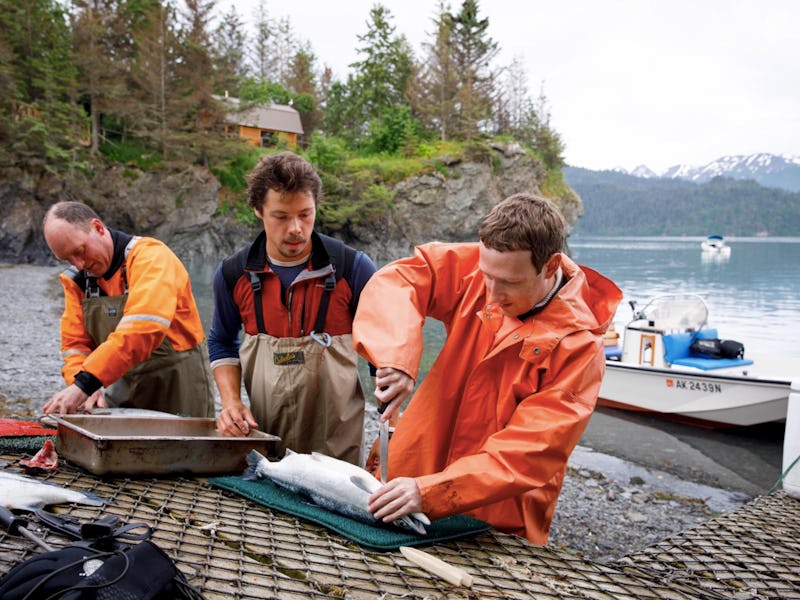Basic Income Is a "Bipartisan Idea', Says Facebook's Mark Zuckerberg
Sure Mark, I'll take some of that off your hands.

Facebook founder and CEO Mark Zuckerberg took a trip to Homer, Alaska, this weekend to do characteristically Alaskan things, like catching fish, cutting fish, watching other people catch fish, oh, and thinking hard about the concept of basic income.
Zuckerberg visited Homer as part of his personal challenge to visit every state in America in 2017. While there, he took some time out of fishing to write a blog post about Alaska’s Permanent Fund Dividend, a state-sponsored form of basic income that redistributes profits from the state’s natural resources to its residents once a year, usually handing them around $1,000 per person (some years as much as $2,000).
“This is a novel approach to basic income in a few ways. First, it’s funded by natural resources rather than raising taxes,” Zuckerberg wrote. “Second, it comes from conservative principles of smaller government, rather than progressive principles of a larger safety net. This shows basic income is a bipartisan idea.
What Zuckerberg’s getting at here is a common critique of basic income, and indeed, the concept of a larger government safety net as a whole — that people who benefit from it are lazy or taking advantage of the hard work of others. In reality, studies show that families who use welfare programs are often led by someone who has a job and spends less, proportionally on luxuries, than people who aren’t on welfare. Still, fiscal conservatives are traditionally against the concept of redistribution of wealth via taxes, saying that it undermines the capitalist free market, and that low taxes help big businesses get richer, allegedly creating more jobs and opportunities for others (the “trickle down” theory made famous by Ronald Reagan, essentially). Zuckerberg points out that Alaska’s Permanent Fund is basically the libertarian dream version of the basic income — it utilizes natural resources (largely, it profits off of Alaska’s oil fields) and gives them to the public.
This is the second time Zuckerberg’s mentioned basic income in the past few months. He summed it up in his Harvard commencement speech in May:
“Now it’s time for our generation to define a new social contract,” Zuckerberg said. “We should explore ideas like universal basic income to make sure that everyone has a cushion to try new ideas.”
Throughout his tour across the country, Zuckerberg has maintained that he’s not planning to run for president, despite his massive name recognition and status as one of the richest men in the world. Thus far, basic income is actually the only issue Zuckerberg has really expressed an opinion about (besides boilerplate statements like “gay people are ok” and “jobs are good,” that is), and it’s a pretty electable one. Promising or advocating for basic income might boil down to “I will give you free money.”
And it’s easy to see why Alaska’s form of basic income appeals to Zuckerberg. Under most other plans, he, as a billionaire, would have to pony up some serious taxes to make sure that poor people got a “cushion to try new ideas.” He mentions that “Alaska’s social programs could inspire improvements across the country,” but he doesn’t exactly say how. It’s worth noting that Alaska, because of its unique geography and extremely low population density, has other non-traditional social programs in place (like the subsidized essential air service). Basic income without increasing taxation is one thing in a state with prodigious natural resources and fewer residents than San Francisco, but it wouldn’t necessarily come as easily in the rest of the country.
In the right circumstances, the concept of basic income could fit into both sides of the fiscal philosophy spectrum.